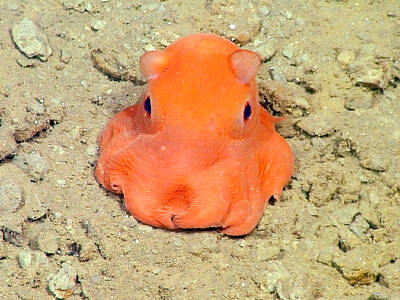The history of Laos and the Lao people has been wrapped up in the history of neighboring countries like Thailand and Vietnam for a long time. However, Laos and its people have a culture, cuisine and tradition that is all their own. Read on to find what makes Laos stand out from its more talked-about neighbors.
寮國和寮族的歷史雖長久以來與鄰近的泰國和越南密不可分,卻也有自己的文化、飲食和傳統。往下讀,探索寮國如何從較多人討論的鄰國中脫穎而出。
A closer look 說古論今

PHOTO: EPA
The history of the Lao people, the main ethnic group of Laos, can be traced back to a kingdom founded in the 1300's, called Lan Xang, or “Land of 1,000 Elephants.” But scholars believe certain parts of Lao culture, like its musical traditions, have existed for thousands of years. In fact, the khene, a traditional mouth organ made of pipes of bamboo, is thought to be as old as the area's Bronze Age. It's an important part of the history of music, and may have influenced musical traditions in China and other parts of the world.
Six hundred years after the foundation of Lan Xan, the kingdom was taken over by the kingdom of Siam, the area known today as Thailand. Siam then gave the area to the French, who were trying to increase their power in the area and the wealth of France. This is not the only time Western politics has affected Laotian history. During the Vietnam War, important battles were fought in Laos by armies funded by North Vietnam and the US. They were a secret, because officially Laos was supposed to be neutral in the fighting.
Today, Laos is one of the only surviving communist states; the people of Laos can vote, but there is only one political party. The country is very poor, but it is growing and improving slowly, partly because of tourism to places like the country's two World Heritage Sites, Luang Prabang and Wat Phou, as well as the Plain of Jars.
寮族(寮國主要族群)的歷史可回溯至西元十四世紀建國的「瀾滄王朝」或「萬象之國」時期,不過學者相信部份寮國歷史,如音樂傳統,早已存在數千年。事實上,笙這種竹管製成的傳統口琴,據信與青銅器時代同期,是音樂史上重要的一章,可能還影響了中國和世界其他地區的音樂傳統。
瀾滄王朝建國後六百年即被暹羅(今日泰國)統治。之後暹羅將此區交予法國統轄。當時的法國正企圖在此擴張勢力與增加國家財富。不過,西方政治不只一次地影響寮國歷史,越戰期間,北越和美國資助的軍隊在寮國進行重要戰役,這些戰役都是秘密進行,因寮國政府應在戰爭中採取中立立場。
今日的寮國是僅存的共產國家之一,寮國人民可以投票,不過寮國只有一個政黨。寮國雖然非常貧窮,但受惠於國內兩大世界歷史遺產景點─龍坡邦和暹粒遺址,以及石壺平原所帶來的部分觀光收益,經濟正緩慢地成長與改善中。

The deep waters off the coast of California are home to a bizarre creature: the flapjack octopus. This creature, known for its pancake-like appearance, spreads itself thin on the seabed as a clever survival strategy, making it difficult for predators to spot and capture it. With its unique, umbrella-shaped body formed by webbed arms, the flapjack octopus moves through the water in a graceful manner. It propels itself forward by rhythmically moving its body and contracting its webbed arms. Its pair of ear-like fins, which move independently yet with remarkable coordination, also help it explore the deep-sea environment. These

Bilingual Story is a fictionalized account. 雙語故事部分內容純屬虛構。 I stand by the Miluo River as dusk falls. The court betrayal is too much. I served Chu with loyalty. I forged alliances and fought corruption. But the whispers of jealous courtiers, the murmurs of treason, spoke louder. The king cast me out. The water looks calm. It promises peace. I step in. The river is cold against my legs. I hear shouts behind me — fishermen calling my name. I keep walking. The calls grow louder, but I do not turn around. The water rises to my chest. It pulls at me. I

In Taiwan, people can use a platform to rent a power washer for a weekend or share unused garage space for someone’s storage needs. These are examples of the sharing economy, a consumption model that has gained widespread adoption worldwide. This approach allows people to rent or share assets like cars, homes or even services, typically through online platforms. This innovative model poses a simple yet powerful question: why purchase infrequently used items when sharing is more practical? By making useful but idle resources accessible, the sharing economy turns them into sustainable opportunities. Internationally, platforms like Airbnb and Uber have popularized

Continued from yesterday(延續自昨日) https://www.taipeitimes.com/News/lang Many people may be familiar with flapjack octopuses thanks to Pearl, a charming character from the Pixar film Finding Nemo. However, her portrayal presents several scientific inaccuracies. In reality, flapjack octopuses are deep-sea creatures, which are unsuitable for the brightly lit shallow reef environment depicted in the film. Their primary defense mechanism relies on their reddish coloration, which would be ineffective in the well-lit shallows. Pearl’s famous line, “You guys made me ink,” is another fictional detail that is not consistent with the observed actions of real flapjack octopuses. As common as it is in many other octopus